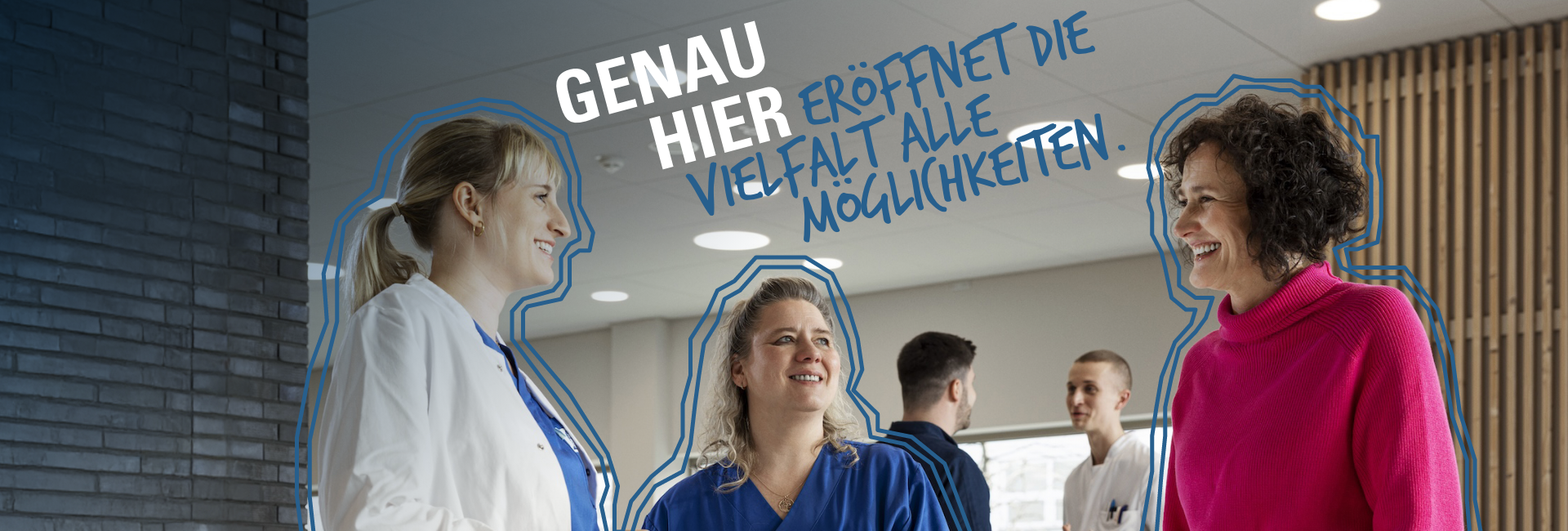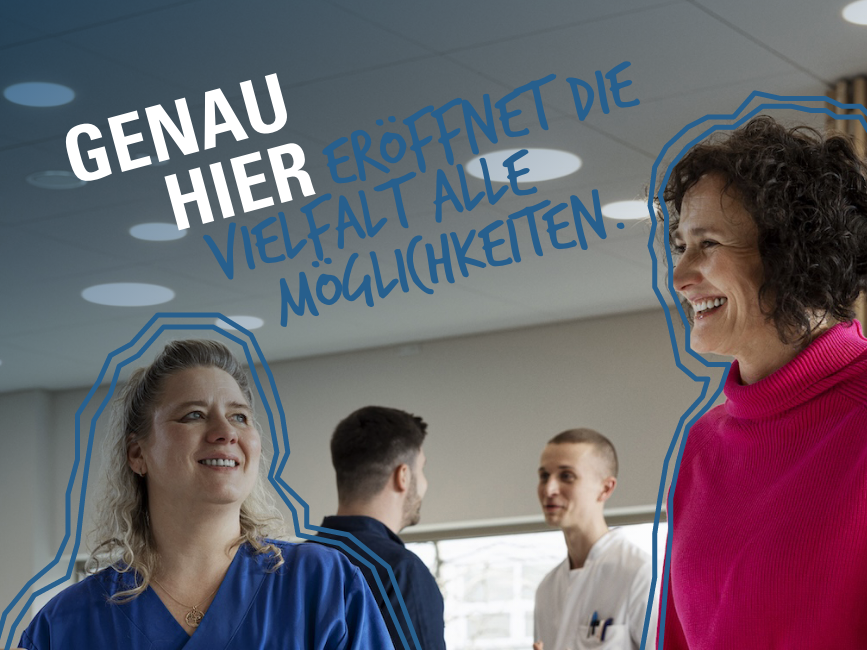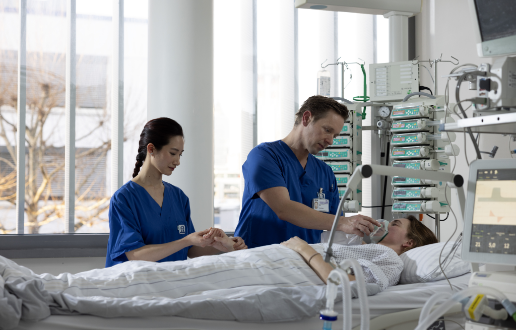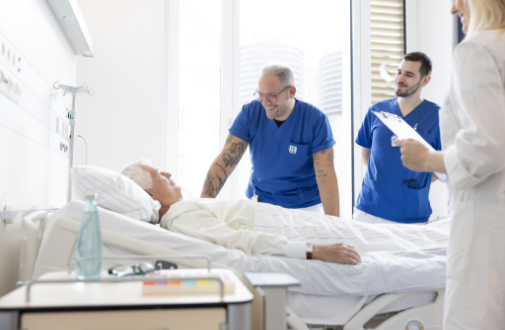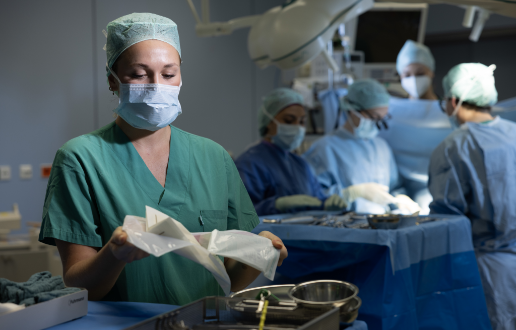...you're in the middle of it
The Department of Medicine 2, Hematology / Oncology at the Goethe University Hospital Frankfurt offers the entire spectrum of diagnostics and therapy of malignant diseases as well as a research program focusing on several cancer entities. The research laboratory of Professor Thomas Oellerich is part of the Frankfurt Cancer Institute and focuses on oncogenic signaling and therapy resistance mechanisms in lymphoma and acute myeloid leukemia. (https://lymphoma-leukemia-research-frankfurt.de/ag-oellerich/ag-oellerich-research).
The lab is furthermore funded by the German Cancer Consortium (DKTK), which was founded in 2012 as one of the six German Centers of Excellence for Health Research (DZG). DKTK aims at bringing promising results from cancer research faster into clinical development and patient care. In the DKTK more than 20 academic research institutions and university hospitals at seven partner sites cooperate with each other and the German Cancer Research Center (DKFZ) in Heidelberg as the core center (https://dktk.dkfz.de/standorte/frankfurt-mainz).
Your Role:
The project focuses on deciphering a novel cancer vulnerability in Lymphoma. The gene of interest is involved in ubiquitin and epigenetic signaling, which appear to influence B-cell development.
- Molecular biology tasks include Western Blotting, cell culture, DNA-damage and replication assays, flow cytometry and image-based assays.
- Genetic modification of cancer cell lines utilizing CRISPR-Cas9 and shRNA-mediated knockdowns
- State-of-the-Art advanced techniques such as proximity-labeling, MassSpec proteomics, RNAseq, and CHIP-seq
- Data analysis, figure generation and scientific presentations
- Bioinformatic analysis in R including exploratory data analysis, gene set enrichment analysis and figure generation utilizing ggplot and Bioconductor packages (optional)
- Code documentation with version control using GitHub (optional)
